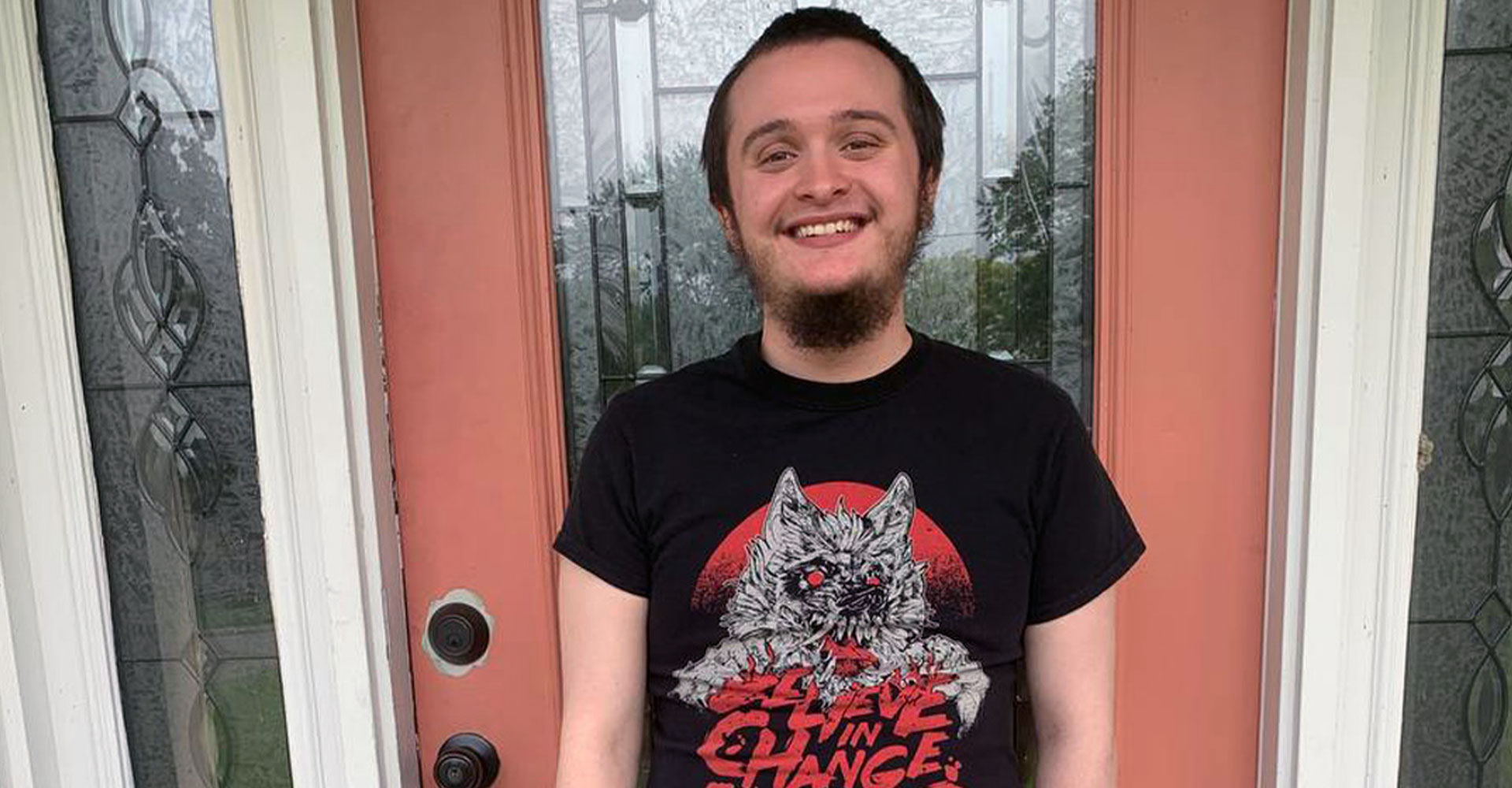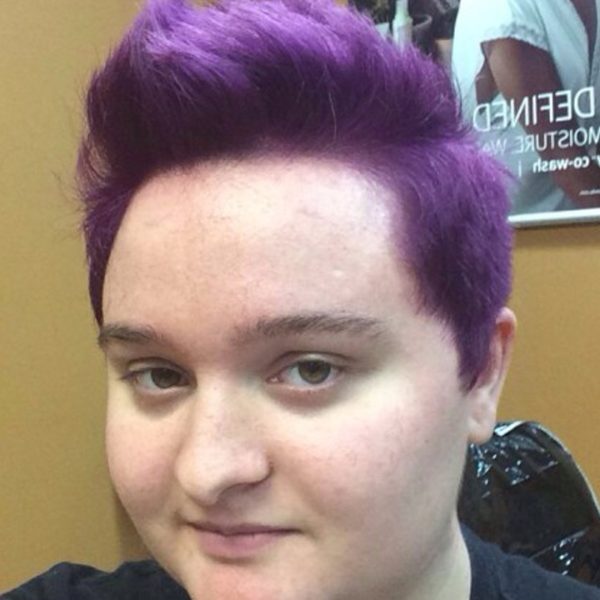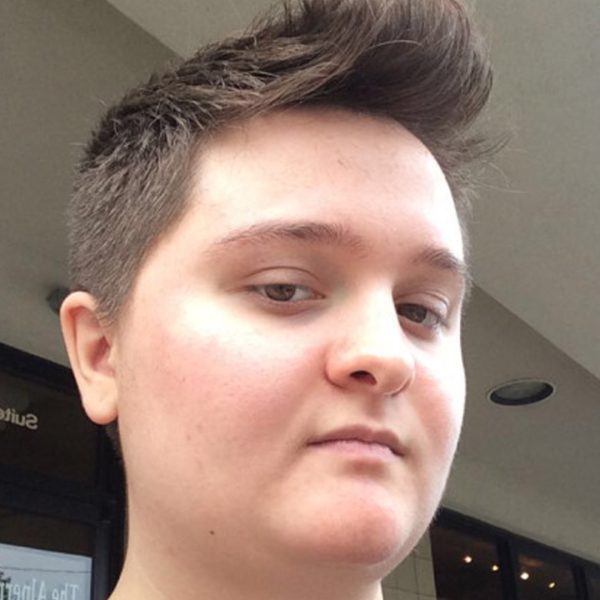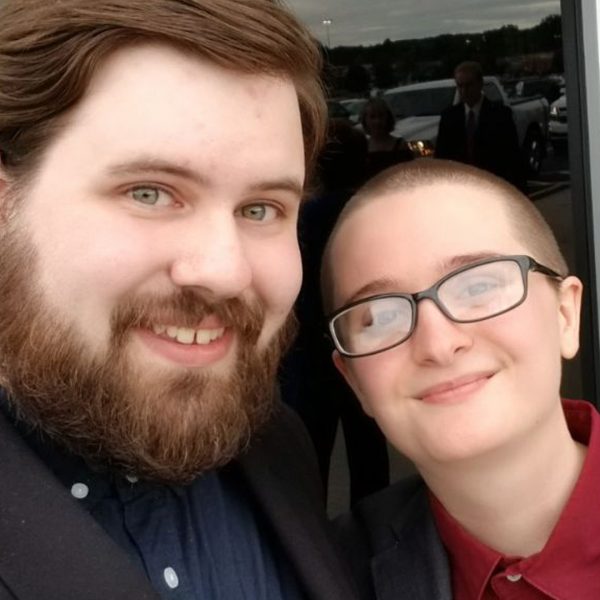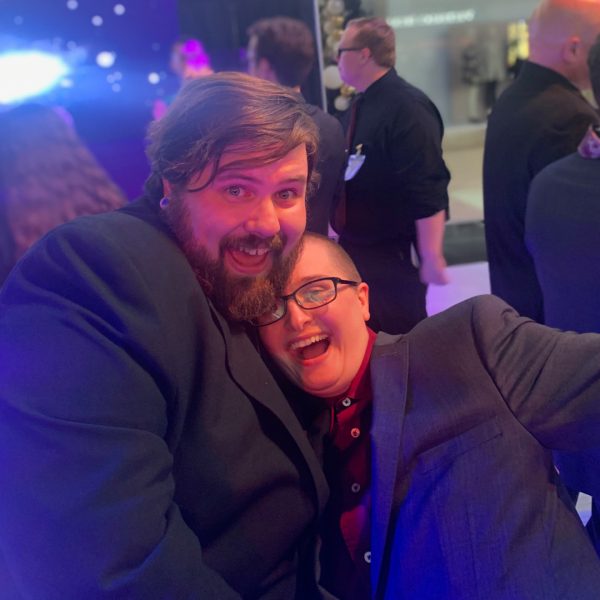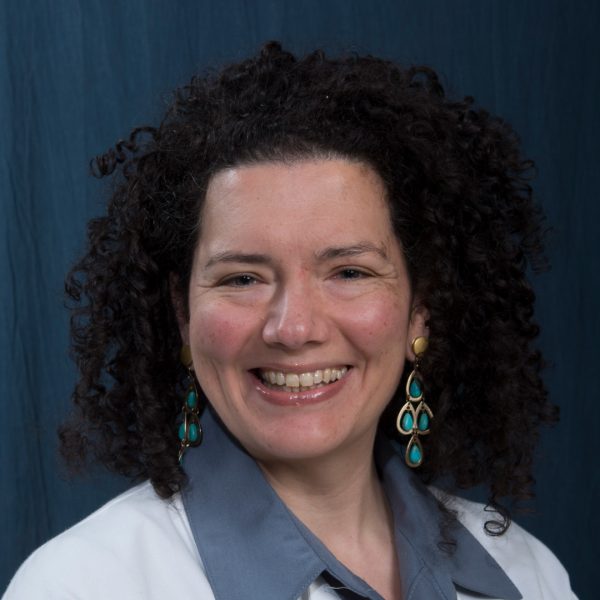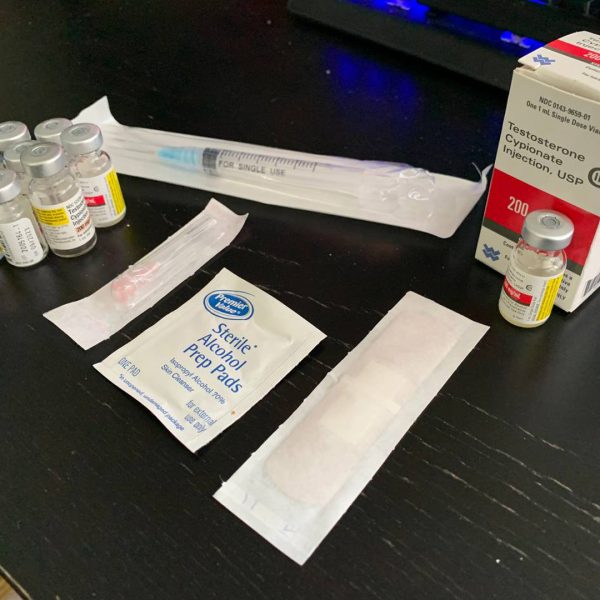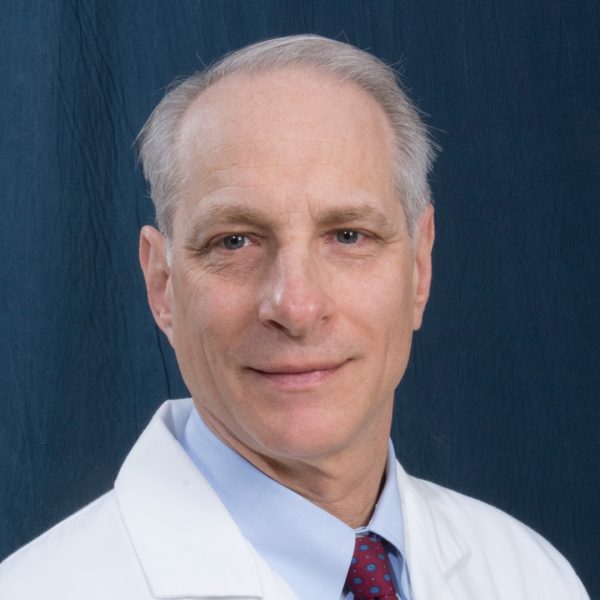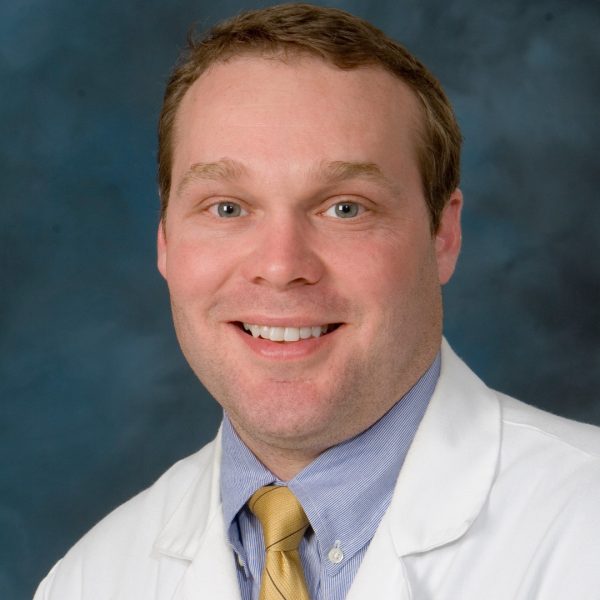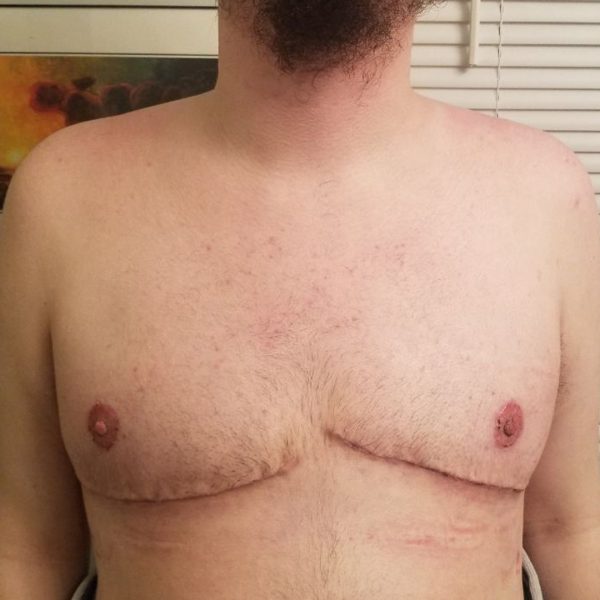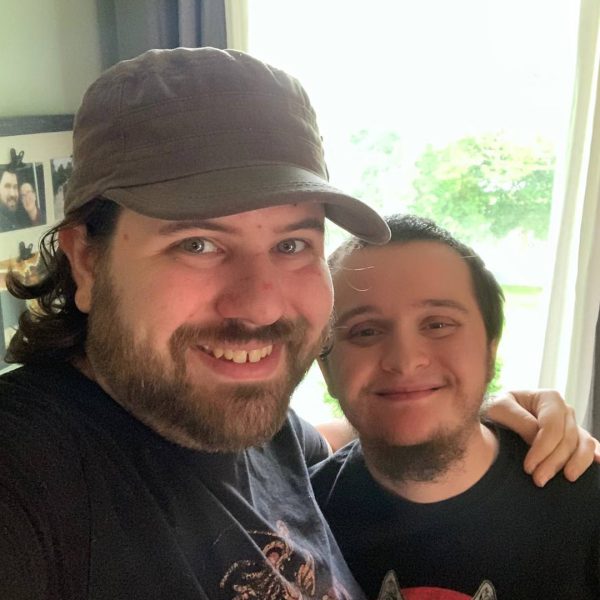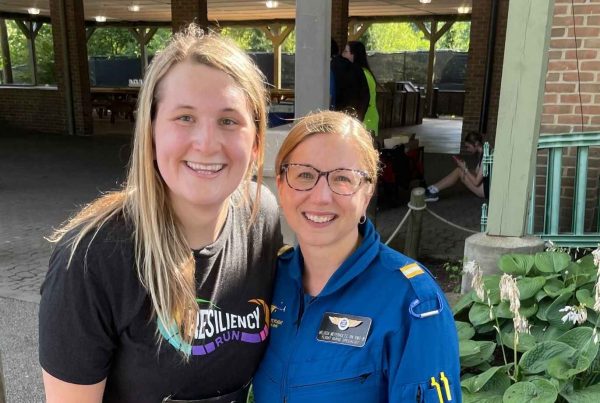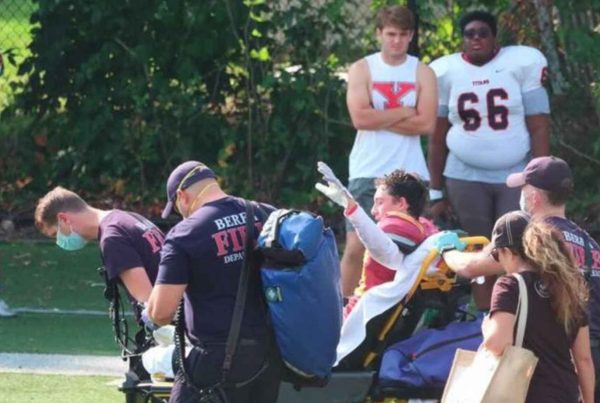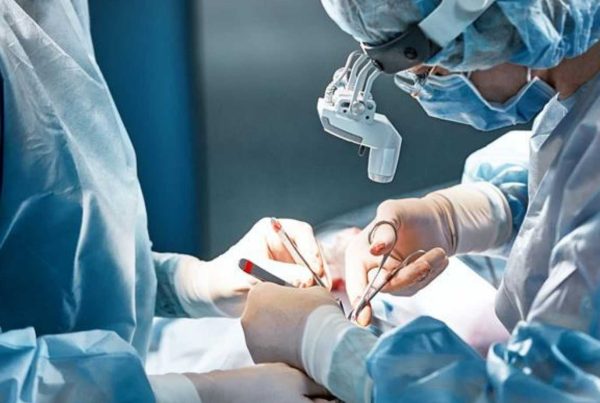As a teenager, Ian May Rock experienced gender dysphoria, a condition that causes anxiety, depression and other distress when the gender that a person identifies with doesn’t match with the assigned sex at birth.
The gender dysphoria began when Ian started developing breasts, but because he didn’t know that there was a word to describe his immense discomfort by it, he didn’t really think much about it. Later, Ian’s gender dysphoria centered specifically around the sound of his voice and absence of facial hair. When he was 22, he decided that he wanted to start hormone testosterone therapy so his voice and appearance would better match his gender identity.
Ian and his partner (now fiancé) Jared Burton started doing research. They landed on MetroHealth. For more than a dozen years, MetroHealth has provided primary care for LGBTQ+ patients. The health system’s Pride Network has expanded over the years to include the main campus and six other locations.
“Knowing that there were people who wanted to help me gave me hope,” says Ian.
A few days after calling MetroHealth, Ian traveled from his home in Warren to meet with Laura Mintz, MD, who specializes in internal medicine and pediatrics.
“Dr. Mintz was no-nonsense. She asked me what I wanted, and she didn’t make me feel like I was making the wrong choice,” Ian says.
As a first step, Dr. Mintz ordered blood tests to make sure Ian would be able to tolerate testosterone. With clear results, he began testosterone therapy in October 2019.
The next phase of Ian’s transition would include a hysterectomy and top surgery: a mastectomy. He didn’t want to worry about what his chest looked like when he was out in public, and whether people could see his breasts when he wore the form fitting shirts he preferred.
“I’m very confident in my identity as a gay man but was worried about being seen as something else because of my chest,” he says.
He also wanted to rid himself of having a period, so he was ready to take the next step.
Patients who desire gender-affirming surgery must undergo a mental health assessment and—if they are transgender men—testosterone therapy for at least a year. Patients must also live consistently for a year as the gender to which they are transitioning.
Ian met with a therapist who specialized in gender dysphoria. After several sessions, the therapist drafted a letter detailing Ian’s journey and why surgery was necessary. A psychologist wrote the final version of the letter, which was submitted to insurance for approving the surgery.
In late 2020, Ian met with Robert Pollard, MD, the gynecologist who would perform the hysterectomy, and Bram Kaufman, MD, MetroHealth’s Division Director of Plastic Surgery, who would handle the mastectomy. And when Ian Rock met with them, he knew he was in good hands.
Ian’s surgery was scheduled for April 8, 2022. It was the first time that MetroHealth physicians completed a hysterectomy and mastectomy for gender affirmation surgery at an outpatient facility. While many surgeons perform the top surgery, the combined procedure is a relatively new offering for hospitals and remains relatively rare in the Cleveland area.
Ian was a bit on edge the day of the surgery. But talking to the nurses and anesthesiologist calmed him—as did the open, inviting space of the MetroHealth Brecksville Health and Surgery Center. Plus, Jared was able to be by his side until he went back for surgery.
“Dr. Kaufman talked to both of us before I went back, and when I told him I was nervous, he simply responded, ‘I’m not,’” Ian says.
Dr. Kaufman performed the double mastectomy, which included some liposuction. Dr. Pollard then completed the total hysterectomy (removal of uterus and cervix). The back-to-back procedures lasted three hours, and Ian went home later that day.
Ian saw his newly flat chest for the first time during an appointment with Dr. Kaufman 10 days after surgery.
“I was almost overwhelmed,” he says, describing his immediate emotions as a mixture of happiness and euphoria. “I’d been thinking almost nonstop about what I would look like underneath it. Seeing it for the first time was surreal. I felt like I could finally breathe.”
He’s simply ready to meet people as his real self.
“I just feel like my life isn’t on pause anymore,” Ian says.

